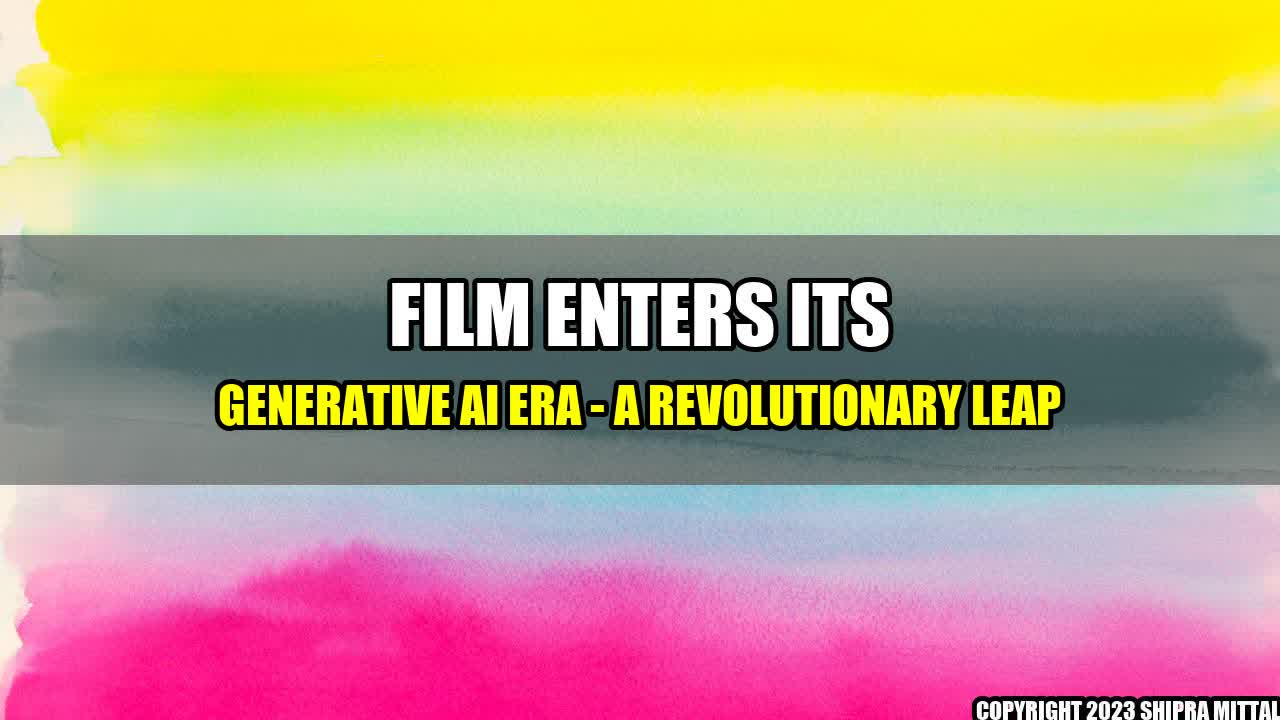A Revolutionary Leap: Film Enters Its Generative AI Era


It was the year 2018 when the movie "Welcome to Marwen" hit the theatres. The movie was about a man named Mark Hogancamp, who finds solace in creating a miniature world through dolls after being a victim of a brutal attack. The movie won praise for its unique approach and stunning visuals. However, what caught the attention of the tech world was the creation of the movie's trailer. The trailer was not created by a human; instead, it was authored by a generative AI algorithm.
Since then, the use of generative AI in film-making has grown leaps and bounds. With the world turning digital, the industry is adapting to new technological advancements to strike with some unique innovations for its viewers.
Generative AI is a type of AI that allows computers to learn and generate information. It is not merely limited to creating virtual trailers but entails a broad range of applications. From generating scripts to editing videos, from test screenings to predicting the box office collections, AI has revolutionized the film industry in recent years.
Disney, a pioneer in the film-making industry, has been exploring AI for enhancing its content and operations. Disney Research has unveiled the AI approach to real-time green screen matting, which allows actors to play their roles in front of an LED screen backdrop that can show any scene in real-time using Unreal Engine and AI.
Warner Bros., yet another film industry leader, adapted "Muse" - a machine learning-based tool that predicts the content that would perform best on their social media platforms, maximizing the engagement and popularity of their content.
Netflix created "Artwork Personalization‚?? allowing it to show specific visual content to attract a user based on the analyzed data of the subscriber's viewing history. In this way, AI has become a cornerstone of the streaming platform, as it displays visuals, texts, thumbnail images that are most likely to drive the user to click and watch.
Akash Mittal Tech Article
Share on Twitter Share on LinkedIn